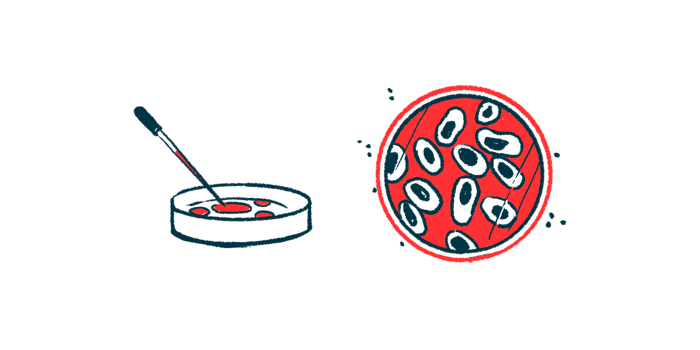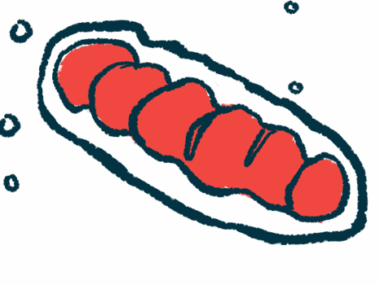Cells lacking Mecp2 harm healthy neurons in Rett mouse study
Results show link between mutant astrocytes and neurons in Rett syndrome
Written by |

New research supports how the lack of Mecp2 protein impairs the function of healthy nerve cells in a mouse study of Rett syndrome.
Specifically, the function of nerve cells was affected when the cells were grown alongside nerve-cell supporting astrocytes lacking the Mecp2 protein, mimicking the genetic defect that causes most cases of Rett.
Mutant astrocytes were also found to secrete the immune-signaling protein interleukin-6 (IL-6), which triggered an abnormal inflammatory response in healthy nerve cells. This in turn suppressed the formation of synapses, the points of contact where nerve cells communicate.
The research “strengthens the relevance of studying astrocyte-neuron communication in [Rett],” scientists wrote.
The study, “Mecp2 knock-out astrocytes affect synaptogenesis by Interleukin 6 dependent mechanisms,” was published in the journal iScience.
Most Rett cases are caused by genetic defects that impair the function of MeCP2, a protein that controls the activity of various other genes. Without Mecp2, the growth and connectivity of neurons (nerve cells) is impaired, leading to a wide range of neurological symptoms.
Evidence links astrocytes lacking Mecp2 to Rett
Astrocytes are a multifunctional, housekeeping type of cell called glial, which are found in the brain and spinal cord and provide support to neurons. Neurons co-cultured with astrocytes generate more synapses than neurons cultured alone.
Emerging evidence suggests, however, that astrocytes also participate in the development of Rett.
An earlier study of a Rett mouse model showed that the loss of Mecp2 in astrocytes alone caused disease-related features, while rescuing Mecp2 production in astrocytes eased neuronal defects and Rett symptoms.
The data suggested mutant astrocytes exert non-cell autonomous effects on neurons, meaning the mutant cells cause other cells, with or without mutations, to show signs of disease.
Scientists in Italy set out to build on those findings to see whether astrocytes without Mecp2 might alter the formation of synapses, a process called synaptogenesis, in healthy, or wild-type (WT), neurons.
To find out, they co-cultured healthy neurons with either Mecp2 knockout (KO) or healthy astrocytes, with the cells separated by a permeable barrier that allowed only molecules secreted from the cells to pass and interact.
Neurons co-cultured with mutant astrocytes had fewer synaptic puncta, or clusters of proteins involved in synaptic function, than neurons grown with healthy astrocytes. At the same time, electrical impulses in neurons grown with mutant astrocytes were significantly reduced.
The effects were specific to different brain regions. Mutant astrocytes isolated from the brain’s outer layer, or cortex, influenced synaptic formation more than those from other brain regions, such as the hippocampus and cerebellum.
“These results demonstrate that molecules secreted by Mecp2 KO cortical astrocytes impair synaptogenesis, therefore supporting a non-cell autonomous influence on WT neurons,” the researchers wrote.
More changes in gene activity were observed in neurons co-cultured with healthy and mutant astrocytes than in neurons grown alone.
Still, neurons grown with mutant astrocytes had lower activity in genes related to the formation of axons (nerve fibers), synapse organization, and cognition than neurons grown with healthy astrocytes.
Mutant astrocytes secrete inflammatory molecule IL-6
In comparison, neurons co-cultured with mutant astrocytes showed increased activity of genes associated with an inflammatory immune response, including higher production of immune-signaling molecules.
An assessment of pro-inflammatory immune molecules identified IL-6 secreted from mutant astrocytes as the main driver of the elevated immune activity in neurons. Not only did IL-6 levels progressively decline when neurons were removed from the co-culture, but mutant astrocytes produced excess IL-6 only in the presence of healthy neurons.
Incubating healthy neurons with IL-6 significantly reduced the number of synaptic puncta, while adding an antibody that blocked IL-6 prevented synaptic alterations and restored functional synapses.
“Our results confirmed the damaging action exerted by Mecp2 KO astrocytes on neuronal health,” the researchers wrote. This corroborated “the importance of Mecp2 expression in astrocytes to sustain neuronal maturation by non-cell autonomous mechanisms,” they added.
The study also showed “molecules secreted by KO astrocytes lead to an abnormal neuronal inflammatory response, triggered by IL-6,” the researchers wrote.







